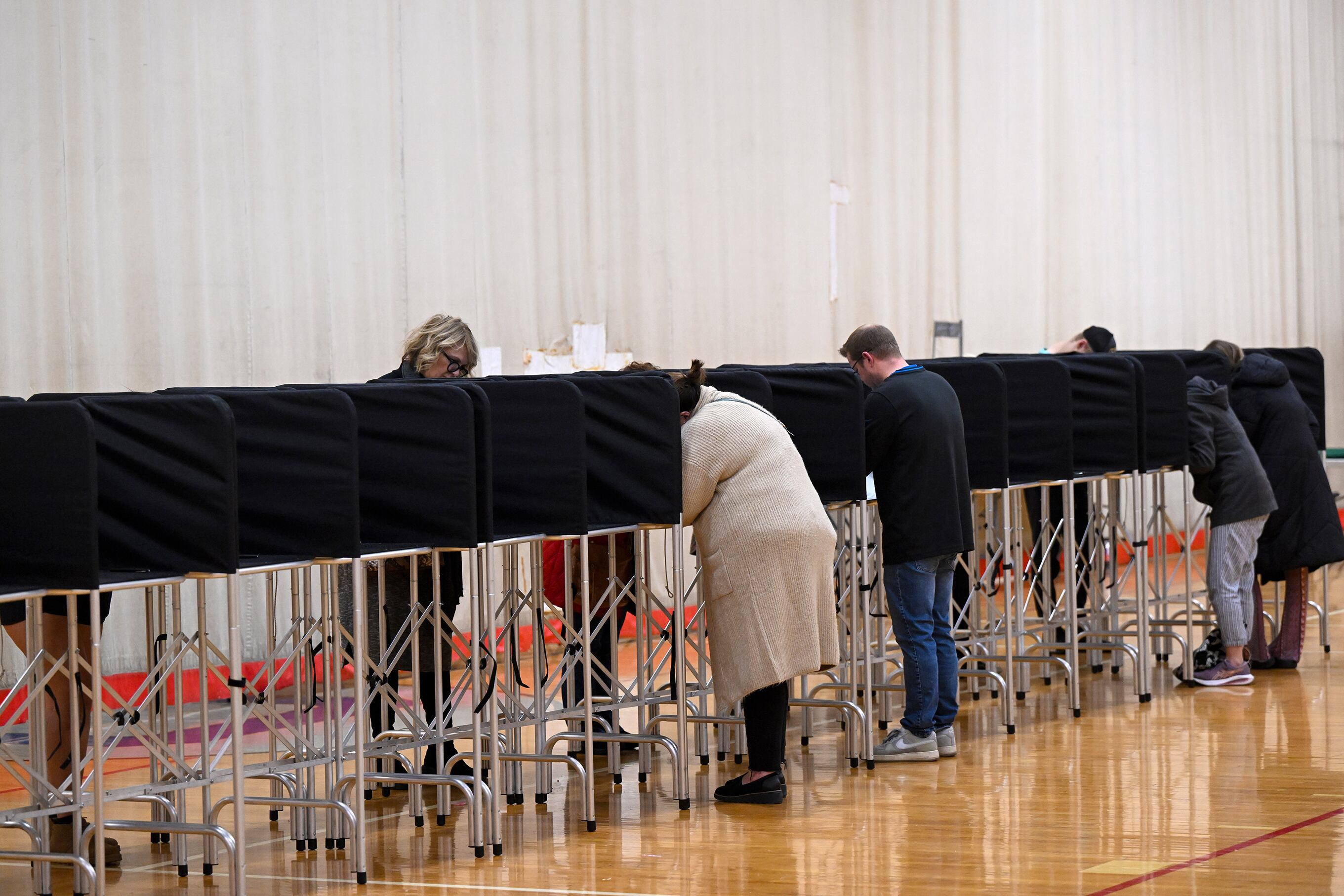A special message to Votebeat readers from editor-in-chief Chad Lorenz:
As early voting wraps up, America’s election system appears to have passed its first test of the 2024 general election.
More than 77 million Americans have already cast their ballots, not far behind the pandemic-era rate for early voting in 2020. Among the notable setbacks, we’ve seen only scattered ballot mishaps and polling place disruptions. There have been reports of mail ballots not getting delivered, long waits to vote because of crowds at early voting sites in Pennsylvania and Arizona, and tech glitches that have inconvenienced voters in Wisconsin and Nevada — all isolated incidents that did not upend the voting process. An assault on a poll worker in Texas, a machete-wielding young man outside a polling place in Florida, and three drop boxes fires in Oregon and Washington briefly raised alarm. Even in flood-devastated Western North Carolina, voters are adapting to ad hoc voting accommodations.
A blitz of last-minute court decisions have gone both ways — some generally in voters’ favor, and some leading to voter disenfranchisement, such as the Supreme Court decision backing Virginia’s program to remove voters from its rolls.
But judging from news reports and election officials’ updates, we haven’t seen a systemic breakdown of voting or a successful assault on the election infrastructure as some might have feared, even as foreign adversaries are trying. That speaks to the high level of local election officials’ preparation and the resiliency of the system.
“I have incredible confidence that our election infrastructure has never been more secure,” Jen Easterly, the director of the U.S. Cybersecurity and Infrastructure Security Agency, said last week. “Election officials have never been better prepared to deliver safe and secure and free and fair elections for the people.”
In the coming days, we’ll see other big tests to our elections and to voters. The last several weeks have given a preview. In Arizona and Pennsylvania, court battles have led to rapid, last-minute shifts in voting rules — like whether Pennsylvania voters whose mail ballots were rejected can try to vote again on Election Day at the polls, or how Pinal County, Arizona, voters who show up at the wrong polling site will be accommodated.
In Texas, Gov. Greg Abbott has fanned unsubstantiated allegations of noncitizens planning to cast ballots en masse for Democrats with his inflated announcement about removing millions of ineligible voters from the state’s voting rolls — including, Abbott claimed, 6,500 noncitizens. The announcements, our Texas reporter Natalia Contreras determined, were a mischaracterization of the routine process of voter roll cleaning, which includes culling the names of people who have moved out of state or died. As for the alleged noncitizen voters, Abbott’s office later amended its press release to add the word “potential” before noncitizens. And in fact, at least 10 U.S. citizens were among the Texans who were improperly removed from the rolls.
Other tests are yet to come. There will be a surge in politically driven legal challenges to voters’ eligibility, as has already started in Pennsylvania. And amid the final processing of mail ballots, many voters will be surprised to learn their ballot has been rejected.
The national media may get important details wrong, because they’re not paying close enough attention to certain states. It already happened when The New York Times, USA Today, and Fox News wrongly reported the start date of early voting in Pennsylvania, as our Carter Walker in Pennsylvania pointed out.
Misinformation will likely proliferate. We’re already seeing it.
At Votebeat, we’ll be following each test closely. And we’ll continue to debunk misunderstandings and misinformation. For example, should you become concerned that people in Michigan could vote twice, it’s useful to know the specific checks in place to detect this — which worked in the primaries, when four voters who allegedly cast two ballots each, one by mail and one in person, were caught. They now face felony charges, as our Hayley Harding in Michigan reported.
Natalia in Texas, Carter in Pennsylvania, and Hayley in Michigan are joined by Jen Fifield in Arizona, Alexander Shur in Wisconsin, and editors Jessica Huseman and Carrie Levine. Our reporters and editors are the most experienced and well-sourced in the business on the voting and elections beat. And we are on the ground in states everyone is going to be watching closely as votes are tallied.
To follow along with us, subscribe to our newsletters, spread the word to your friends — and please, share your questions at community@votebeat.org. We’re here to help.
Chad Lorenz is Votebeat’s editor-in-chief and is based in Denver. Contact Chad at clorenz@votebeat.org.





